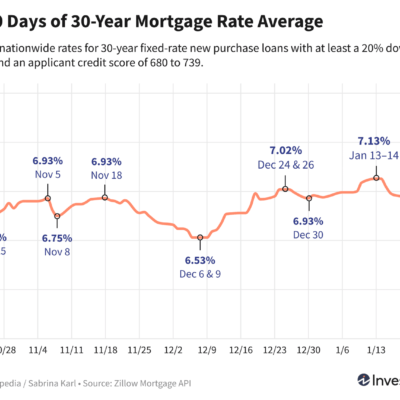Would-be homeowners have been waiting and hoping for mortgage interest rates to fall, which would make homes more affordable by lowering monthly payments, but most overlook a tax credit that can knock $2,000 a year off those interest payments.
The Mortgage Credit Certificate is an unusual federal perk in several ways, which I’ll explain, but the strangest thing about it could be how few people take advantage of it.
I’ve written previously that if MCCs had been available in South Carolina when I bought a house in 2004, that would have saved me $26,000 by the time I sold it and downsized in 2018.
The MCC became available in South Carolina in 2013. In 2024 just 73 home buyers in South Carolina obtained one.
Unlike the federal mortgage interest deduction, used by wage earners who itemize rather than taking the standard income tax deduction, the mortgage certificate is only available to those who obtain one before completing the purchase of a home. That’s very unusual, because most federal tax breaks can be claimed any year by anyone who qualifies.
The reasons why it works that way are complicated — states must take actions to allow for and administer MCCs, and it involves government housing bonds. But the important thing to know is the rule about getting one before closing on a home purchase.
What’s the payoff? Being able to claim a third of your annual mortgage interest, up to $2,000, as a federal income tax credit, every year you own the property.
That’s a $2,000 reduction in one’s federal income tax liability, dollar for dollar. And because that essentially reduces the cost of a monthly mortgage payment, an MCC can also help someone qualify for a home loan.
To get an MCC in South Carolina, a buyer — again, before completing the purchase — works with a participating lender and pays a $1,000 fee. The state’s housing finance agency, known as SC Housing, administers the program and has participating lender lists and more information at schousing.sc.gov.
Of course, there are rules and restrictions, including:
-
In some South Carolina counties, the buyer cannot have owned a home within the last three years. That rule is waived for veterans and in many counties, including Beaufort, Berkeley, Calhoun, Dorchester, Fairfield and Saluda.
-
There’s an income limit, which also varies by county, but it is fairly generous. In most counties the cap for one or two people is $108,600 this year. In the counties I listed earlier, the limit is higher, with $135,000 in Berkeley County being the highest. In others, it’s lower, but the lowest is $90,500.
-
There’s also a home price limit of $450,000 in any county.
-
The MCC can only be used for a home that’s used as a primary residence.
This tax break is aimed at helping people achieve home ownership, particularly first-time buyers. And it’s set up to particularly benefit those who live in the home they buy for nine years or longer.
For those who get an MCC and then sell their home before nine years have passed, the government will want some of the money back, but only if the seller’s income has increased beyond the MCC limits and they sell the home for a profit. All three of those conditions would have to be met in order for the “recapture tax” to apply.
The amount that would have to be repaid would be half the capital gain on the house or 6.25 percent of the original loan amount, whichever is less. At least eight states reimburse borrowers if that happens, but not South Carolina.
Questions? Visit SCHousing.sc.gov, call the agency at 803-896-2211 or email mortgage.production@schousing.com.





